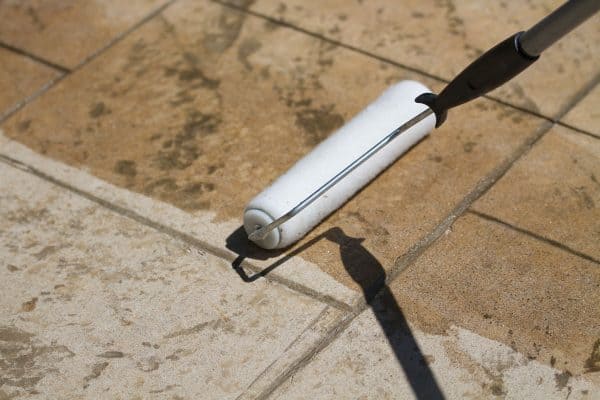Disclosure: We may get commissions for purchases made through links in this post.
Pavers give your outdoor landscape a unique, sophisticated look. Whether it's for your walkway, driveway, or patio, pavers add a touch of elegance and create more convenience in your outdoors. If you want them for your home, you need to know that there are two types of pavers: permeable and non-permeable. So what's the difference between them? Which one should you choose? We've done thorough research to give you the information you need.
Permeable pavers differ from non-permeable pavers mainly in that they allow water to pass through the surface instead of running off. Non-permeable pavers, on the other hand, do not allow water to pass through. So if your landscape isn't graded to carry water away from your home, it can collect pools and let water seep into your yard or the structure of your home.
There's more to discuss about each type of paver, so keep reading! We'll get into the benefits and drawbacks and give you examples of each type so you can decide which one is right for you. We'll also answer other important questions pertaining to this topic.
![Garden brick pavers and tile plants, evergreen shrubs and deciduous trees landscaping, Permeable Pavers Vs. Non-Permeable Pavers [Including 3 Examples Of Each]](https://pavingplatform.com/wp-content/uploads/2022/03/Permeable-Pavers-Vs.-Non-Permeable-Pavers-Including-3-Examples-Of-Each.png)
Permeable Pavers
Permeable pavers are designed for drainage and stormwater management, creating a stable and solid surface while allowing water to permeate into its paving system. This system consists of a gravel bed as the layer directly underneath the paving material, a filter fabric as the third layer, and a bed of sand as a final layer. It's responsible for storing water in a reservoir before draining it into the soil beneath.
These pavers are thicker than traditional pavers at around 3 1/8 inches thick. In comparison, other pavers are around 2 3/8 inches thick. This is because permeable pavers have wider joints filled with crushed aggregate that allow water to pass through.
Most construction experts and researchers consider permeable pavers to be a superior, more beneficial paving solution compared to their non-permeable counterparts. This is largely because by allowing water to pass through its surface, it prevents runoff and flooding.
So when rain pours down, it won't collect pools of water and allow it to rise to high levels, causing it to flood your home and/or compromise its structural integrity. In addition, preventing water puddles from forming keeps you safe from toxins and waste that can collect in stagnant water.
Permeable pavers also help make stormwater management easier by reducing runoff that goes into the sewer system or the road, creating driving hazards. Plus, when you have permeable pavers installed, you won't need stormwater permits. Reduced runoff also means reduced soil erosion, which is a great benefit for erosion-prone areas.
Yet another benefit of permeable pavers is that they're durable - even for high-traffic areas such as your driveway. They won't peel, crack, or form potholes.
Lastly, permeable pavers are more eco-friendly in that they filter the water that enters the soil below and goes into water streams. Some permeable pavers are also created with recycled plastic, unlike traditional pavers which are made entirely of concrete and asphalt.
So when should you opt for permeable pavers? Well, permeable pavers are ideal for most hardscapes - whether for residential or commercial properties, parking lots, sidewalks, and more. But they're especially beneficial and vital to those who have:
- Driveways that slope towards the garage door
- Patios without a natural slope
- Problems with drainage
- Susceptibility to floods due to weather conditions in the area
Examples of Permeable Pavers
Not only are permeable pavers convenient, durable, and practical, they can also be aesthetically pleasing! They can beautify your outdoors, enhancing your curb appeal with their unique style.
Here are a few examples of permeable pavers:
Concrete Unit Pavers
We typically refer to this type of pavers when we say permeable pavers. These paving units create an interlocking pattern that offers openings in the surface through which water can pass.
Grass Pavers
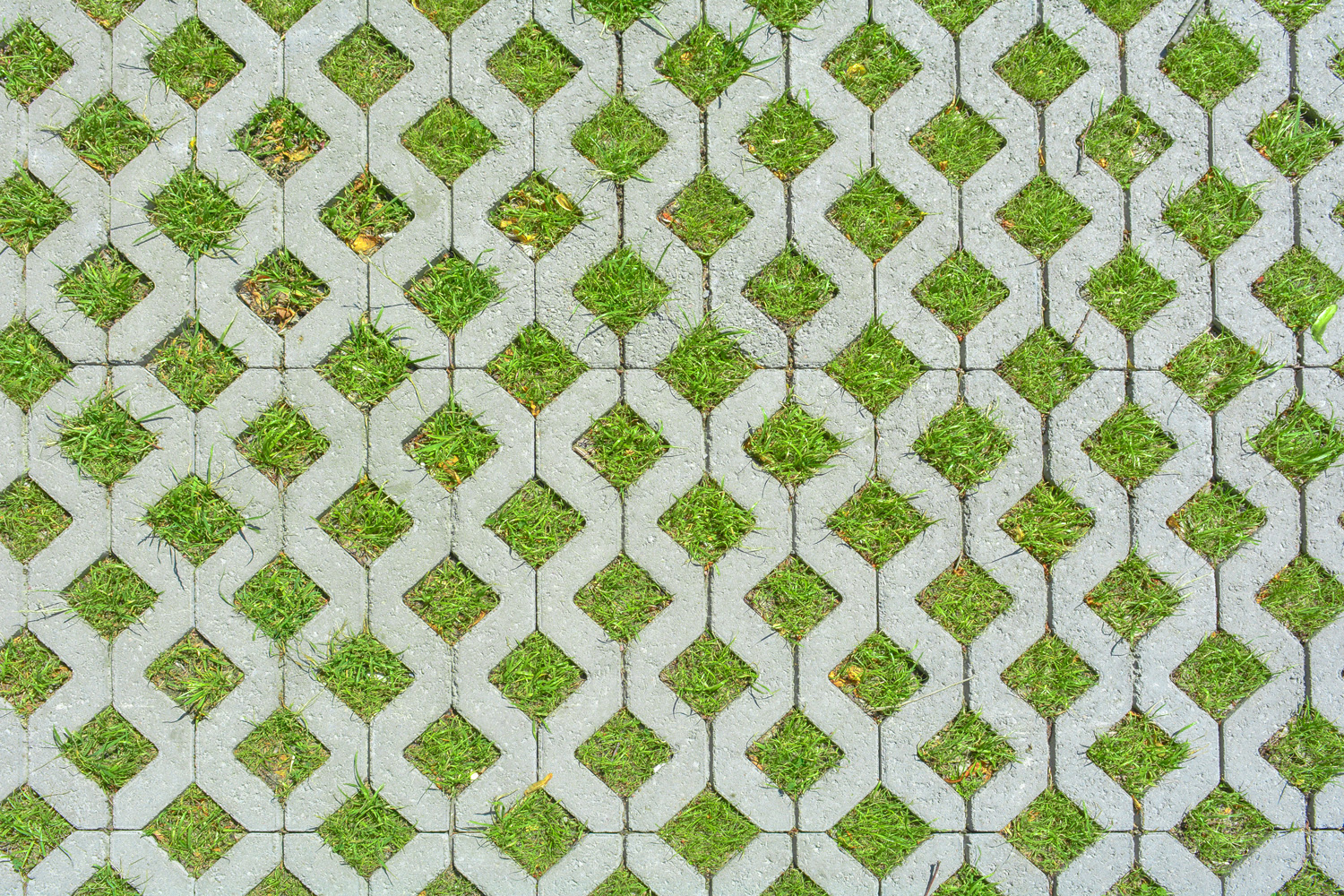
These pavers have open concrete cells that are filled with soil to grow grass in. This type of paver is more ideal for residential areas.
Plastic Grids
Like grass pavers, plastic grid pavers are open-cell and filled with either grass or gravel. They are more flexible than concrete, making them suitable for uneven ground.
Non-Permeable Pavers
Traditional pavers are more commonly found in residences and buildings. Consisting of concrete or asphalt and sand, they are non-permeable and water-resistant, meaning they don't allow water to pass through the paving surface. Instead, they collect water in pools or carry stormwater runoff away from the surface.
To manage drainage in non-permeable pavers, your hardscape needs to be properly graded and sloped away from the home. This is to prevent water from flooding or damaging your structure. You will also need to have surface drainage systems installed.
Unlike permeable pavers, these pavers use sand to fill in the joints. This is done to bind concrete elements together, resulting in stiff, strong, and durable joints.
It's true that permeable pavers often come out ahead of traditional pavers in terms of convenience, stormwater management, sustainability, and versatility. However, they do offer a few benefits.
They come with a wider variety of sizes and styles to choose from. Plus, they're cheaper to install and easier to maintain. Upfront prices for permeable pavers are typically higher than those of non-permeable pavers, and maintaining them requires draining out the reservoir in the paver system to ensure it can continue to let water pass through.
It's also important to note that permeable pavers are not suitable for paving surfaces that get extremely heavy traffic such as highways. Only traditional pavers can withstand the consistent pressure from this type of traffic.
Examples of Non-Permeable Pavers
Traditional pavers offer a wide range of product choices. These include:
Concrete Pavers
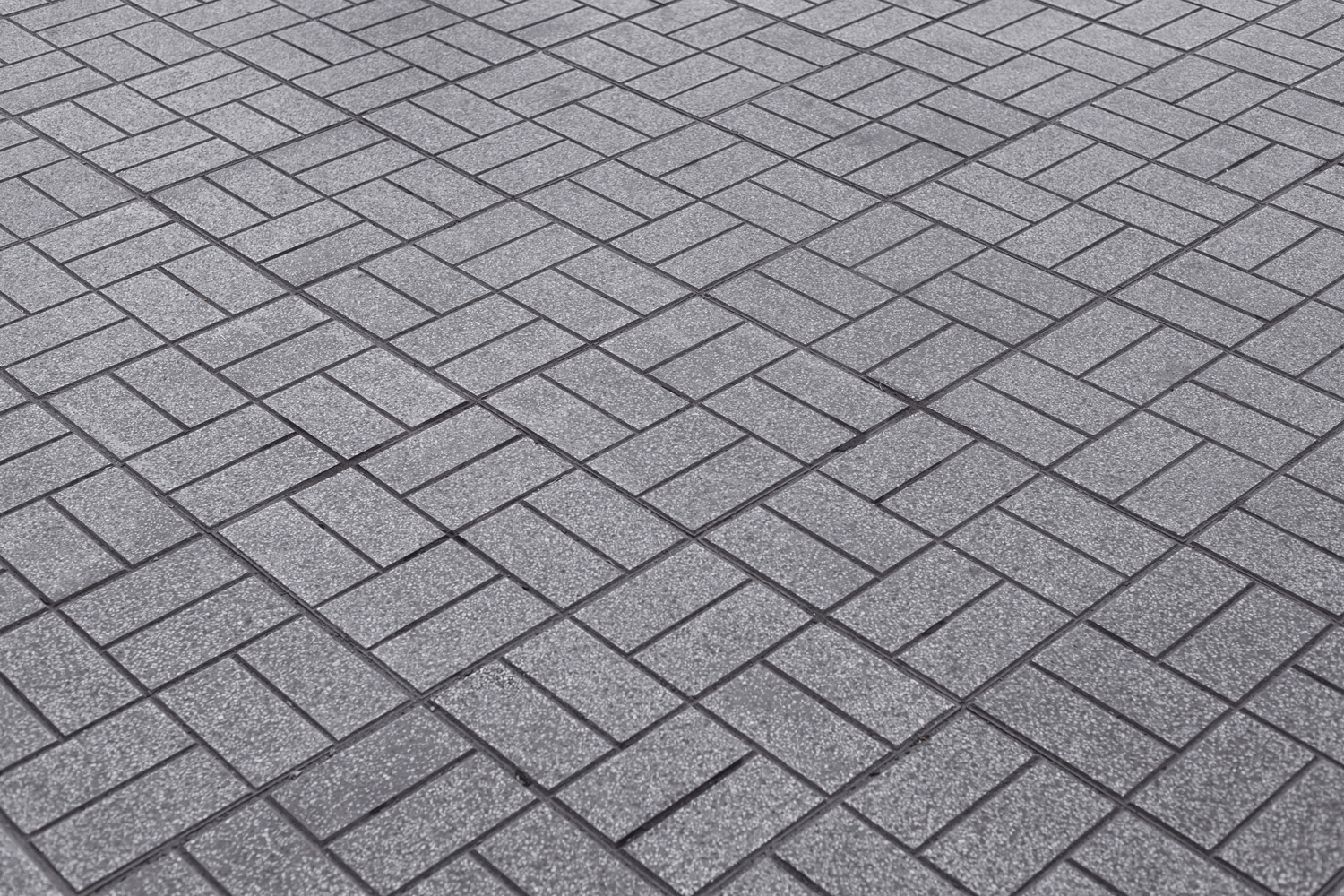
The most popular option for paving. Concrete pavers are durable and easy to install. They also come in different styles and patterns to suit different needs.
Brick Pavers
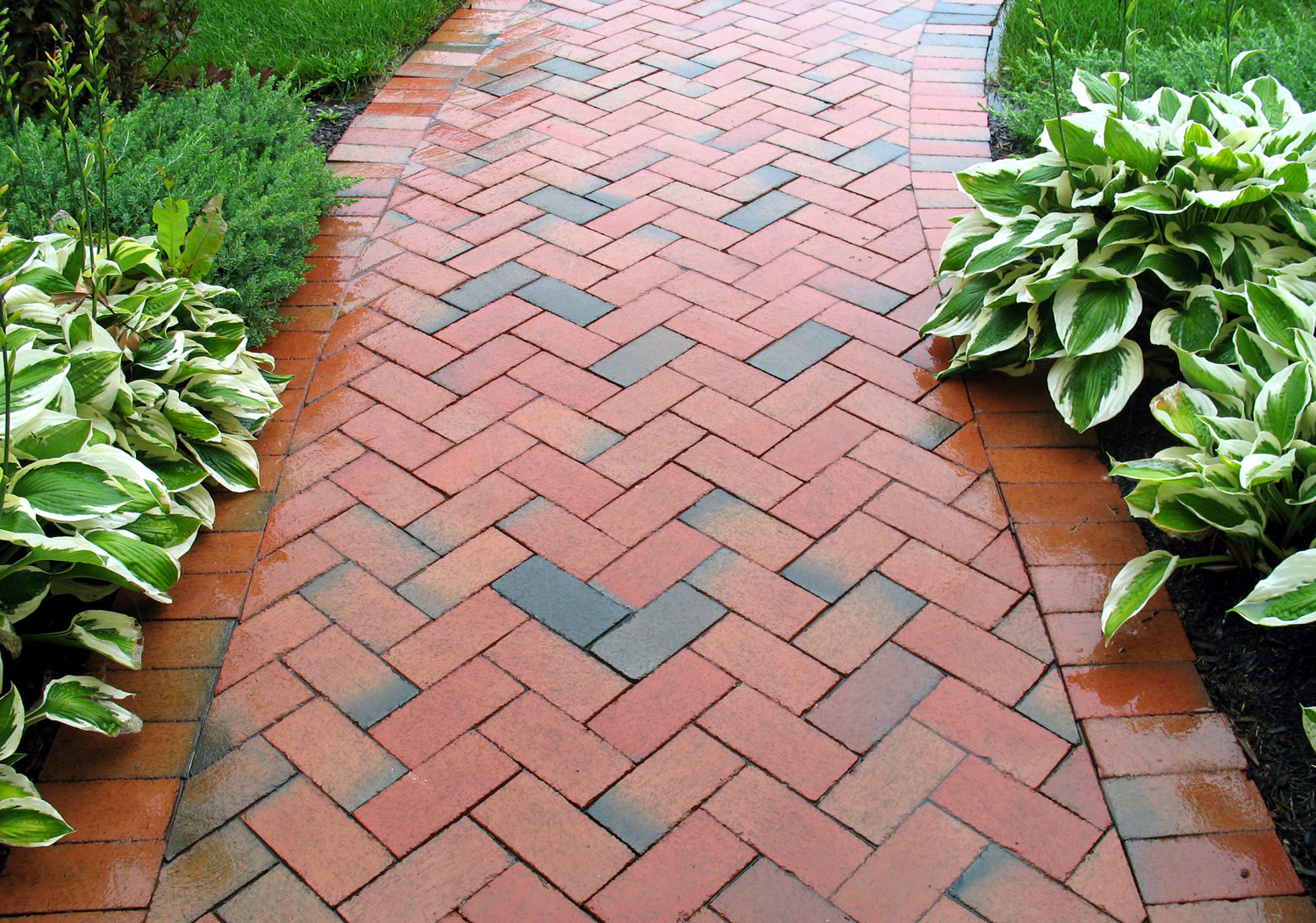
Made of molded clay that undergoes casting and heat curing, brick pavers are known as excellent alternatives to concrete pavers. They're more eco-friendly than concrete, and they last longer in terms of color retention and style.
Cobblestone Pavers
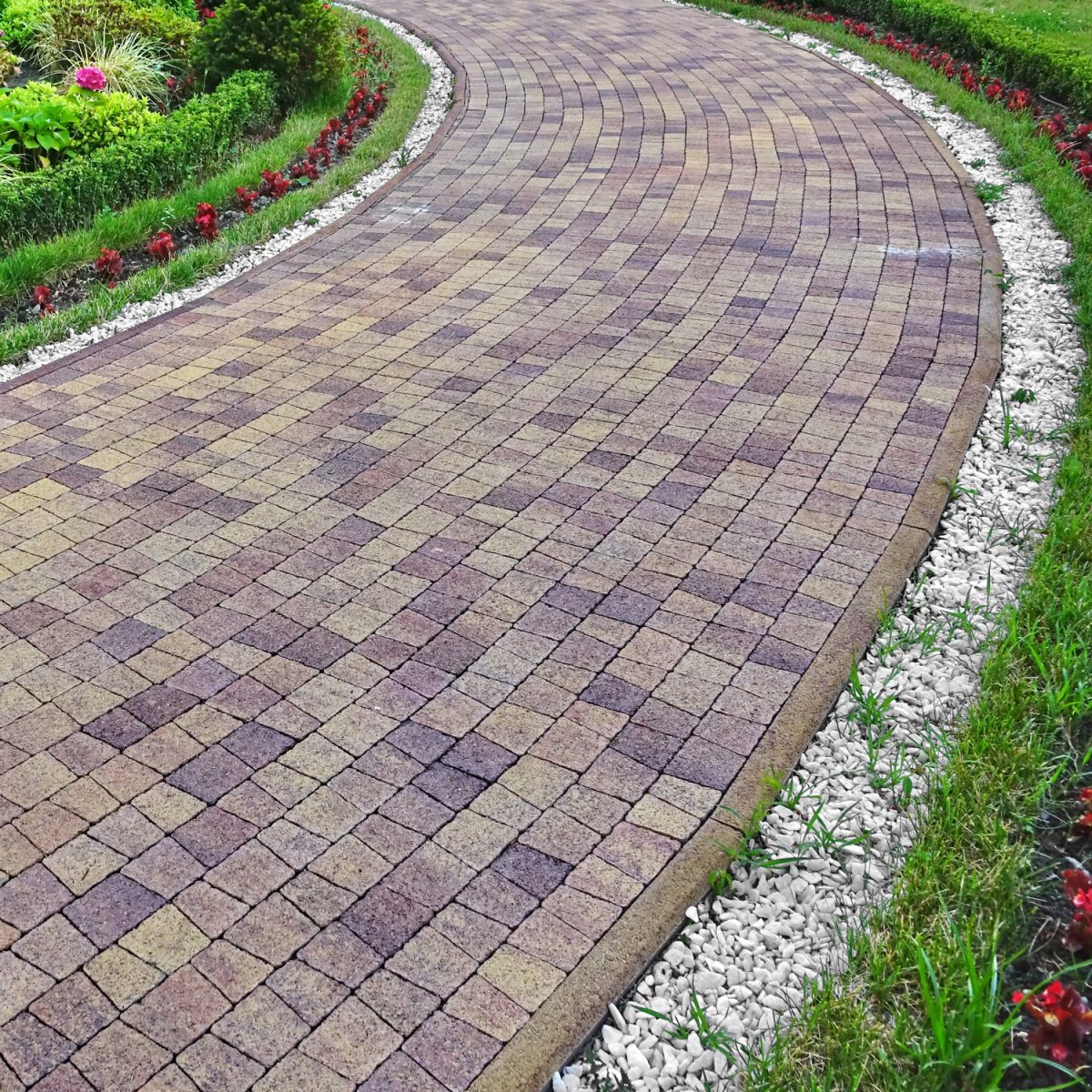
Known for their unique, elegant appearance, cobblestone pavers create a timeless aesthetic in outdoor spaces. They're typically chosen for patios and walkways due to their charming appeal.
Do permeable pavers cost more?
Unfortunately, permeable pavers cost more to install than non-permeable pavers. On average, they cost around $6,720-$7,940 whereas paving an asphalt driveway costs around $2,870-$6,360. However, you may find that the steep upfront prices are worth it since you don't need to invest in underground drainage systems for runoff. So in the long run, you may be saving yourself a lot of time and money.
Can you seal permeable pavers?
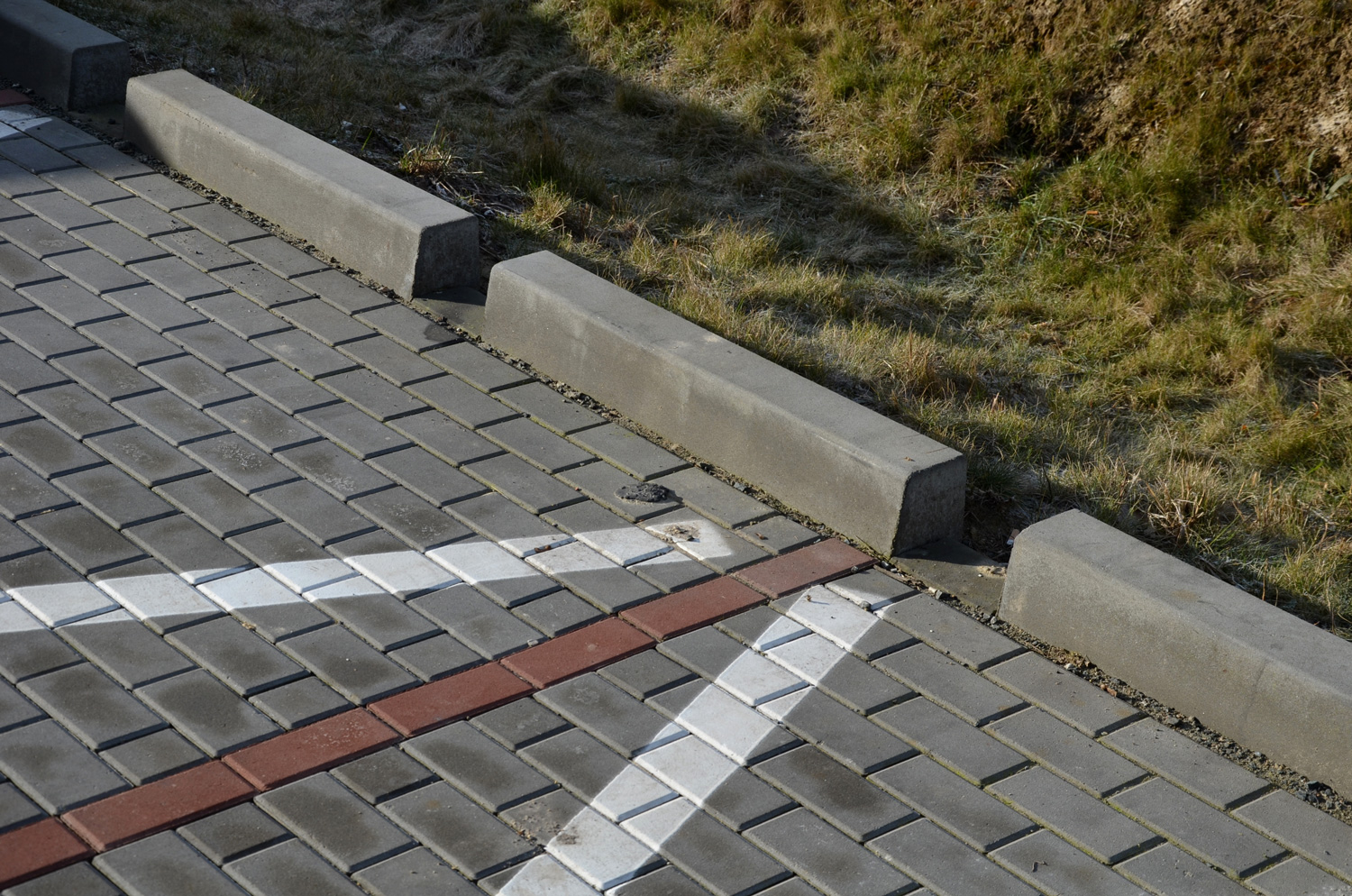
Yes! In fact, sealing permeable pavers can protect them from UV rays and stains, allowing them to stay clean and appealing for longer. Take note that you would need a sealer that doesn't prevent the joints of permeable pavers from letting water flow through. It's best to consult with a professional about sealing your paving and have them accomplish the task as well.
How do you maintain permeable paving?
Permeable paving requires a little more TLC than regular counterparts, so it's important to follow the right maintenance regimen to keep it in tiptop shape. Here are a few tips to help you successfully maintain permeable paving:
- Clean the surface regularly - once a month is ideal.
- Remove debris as often as possible with a shop vacuum.
- Refill joints with clean granite as often as needed.
- Remove snow with a plow or a shovel with a rubber tip in the winter.
- Check on the paving after heavy rains or storms to see if it's still draining properly.
How long do permeable pavers last?
Known for their longevity, permeable pavers can last up to 20-30 years!
In Closing
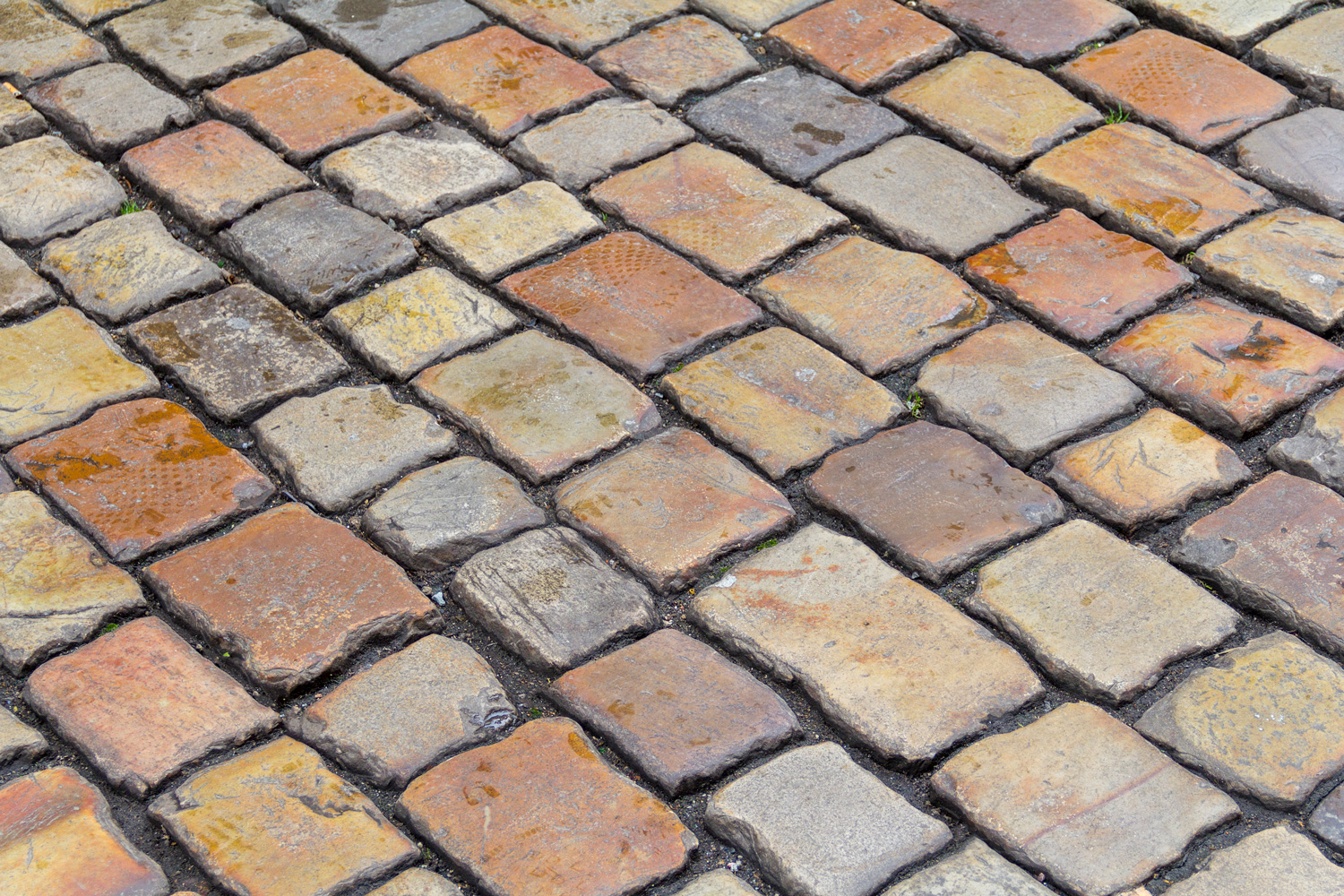
Permeable pavers make excellent choices for paving solutions. What makes them distinct from non-permeable pavers is that they allow water to pass through and thus prevent pooling and runoff.
This can prove beneficial in many ways: permeable pavers prevent flooding, allow for better stormwater management, last long, and offer more environmentally friendly options.
However, you can also go for non-permeable pavers if you want a cheaper paving solution that's easier to maintain. Keep in mind that your top priority should be the type of paver that's more cost-effective in the long run and goes with your specific needs and preferences.
If you enjoyed this article, we've got more for you! Check out these informative posts:

![Vibrant Red Paver Stone Path, Can You Spray Paver Sealer? [How To Apply It]](https://pavingplatform.com/wp-content/uploads/2022/04/Vibrant-Red-Paver-Stone-Path-600x400.jpg)
![Properly laid out red pavers for a garden, Can You Tint Paver Sealer? [And How To]](https://pavingplatform.com/wp-content/uploads/2022/04/Properly-laid-out-red-pavers-for-a-garden-600x400.jpg)
